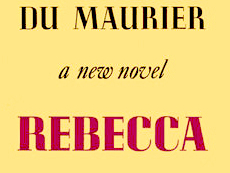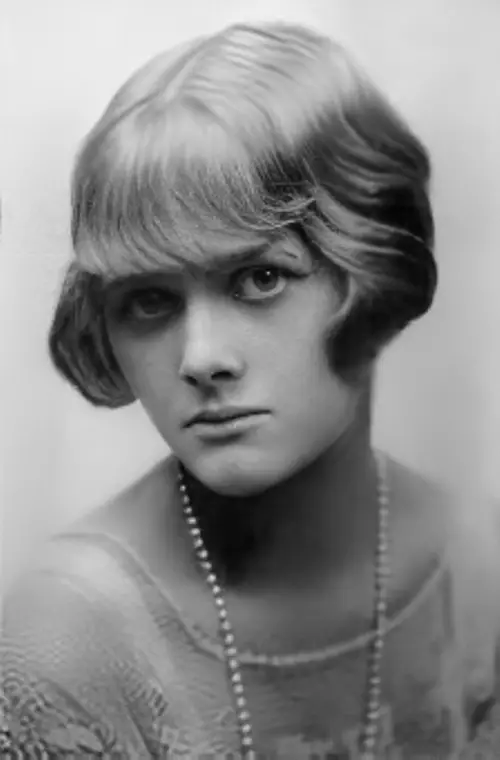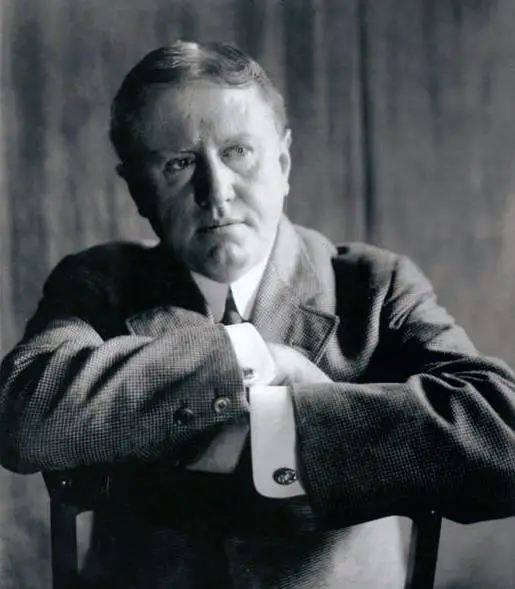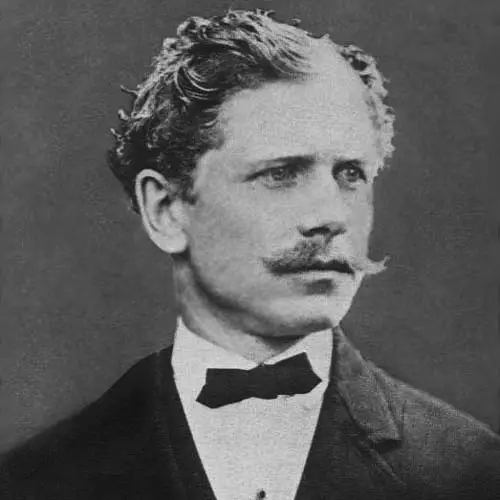Unease. Creepiness beneath the surface. An unanticipated turn. Shock value. An ironic ‘all’s well’ reversal. Certain authors are known for transforming the mundane into the unforgettable or for writing against expectations, creating works that stay with the reader forever. As I look through my shelves of books, much like a stroll down memory lane, my eyes settle on those authors who call to me from among the others. I pull those books down, sit, and re-read their words.
Related: Top 10 Rules for Mystery Writing?
No matter how many years have passed, these stories are imprinted on my brain as if with indelible ink. What recommends them personally could be the exquisite storytelling, the uniqueness of the theme, the strong characters that jump from the page, that element of surprise or suspense, or just because. Among the masters of the unexpected who have stunned us with their memorable novels and short stories are Daphne du Maurier, W. Somerset Maugham, O. Henry, Guy de Maupassant, and Ambrose Bierce.
Daphne du Maurier: Novels & Short Stories Keep You Guessing
Last night I dreamt I went to Manderley again
Mrs. de Winter, Rebecca
One of the most recognized first lines in a novel, this quiet dream-like opening recalls the mansion that looms across the landscape as a main character, wherein the action of this haunting Gothic tale unfolds. An unnamed shy, awkward young woman, companion to a wealthy elderly snob, meets and marries rich handsome widower Maxim de Winter, who takes her to his storied Manderley, a house on a cliff. No one understands why Maxim has married her, as the new Mrs. de Winter is the exact opposite of his fabled, accomplished first wife Rebecca.

Everywhere she turns, signs of Rebecca and the adoration she experienced, particularly from Maxim, greet the second timid wife. She encounters the head housekeeper, Mrs. Danvers, whose obsession with Rebecca is unbearable and frightening. Why did Maxim marry this unaccomplished young woman who everyone compares to Rebecca? Calm disappears as suspicion enters. What really happened to Rebecca? The novel stands the test of time, but Alfred Hitchcock’s film of the same name permanently seared the story into our minds.
They used to hang men at Four Turnings in the old days. Not any more though.
Ambrose, My Cousin Rachel
An unsettling tale of ambiguity, My Cousin Rachel begins innocently enough. Ambrose, owner of an estate in Cornwall and guardian to Philip, marries his widowed cousin, Rachel, while vacationing in Florence. Time passes and Philip receives this note from Ambrose: “For God’s sake, come to me quickly. She has done for me at last, Rachel my torment. If you delay, it may be too late.” Ambrose dies mysteriously, and henceforth, Rachel arrives at the Cornwall estate. Philip seeks to reveal Rachel as a poisoner, but his opinion of her changes over time as do his emotions toward her. We are left to wonder was she guilty or wasn’t she? Their tale of passion, death, and deception that might have resulted in murder remains unresolved.

A collection of short stories by du Maurier, Kiss Me Again Stranger, from my mother’s bookshelf long ago, so much so that its yellowed pages fall from the book’s binding when opened, includes the original tale The Birds. A woman brings two lovebirds to town and with this comes an unprecedented, inexplicable attack, documented in detail. Why are the birds gathering and killing? Is it Nature’s uprising of vengeance against humans and what they have done to the environment? The ominous theme is unnerving and builds in intensity, as humans battle their attackers and lock themselves in their homes. Again, Hitchcock filmed a renowned version of this terrifying story, but few know that du Maurier created it.
No Motive, a little-known tale of quiet suspense, has remained with me through the years. Its resolution leaves one heartbroken yet satisfied at the same time. Mary Farren, a seemingly contented woman, shoots herself with her husband’s revolver. In their three-year marriage, they were devoted to each other. Her husband, Sir John, hires a Scottish detective, Black, to investigate the case. Why did she commit suicide for no apparent reason? The paths that this nerve-wracking investigation follows, where it leads, and Black’s report at the conclusion will stay with you. You might, as I have, revisit it over and over again through the years. Significant and superb.
Temptation: W. Somerset Maugham’s Rain From South Sea Stories
Known for classic significant novels, such as Of Human Bondage and The Razor’s Edge, here we examine Maugham’s Rain, a famed story of human nature gone wrong that may be less shocking today than in the past. Written to startle, it shows society’s prejudices, superiority, and promotion of Manifest Destiny at the highest levels. The story involves two couples, Mr. Davidson (a medical missionary described as “sinister”) and his wife, both pompous, self-righteous, and insistent that the natives follow their teachings (“save them in spite of themselves”), and Dr. Macphail and his wife, observers.
The tale plays out against a backdrop of torrential, ceaseless, and “pitiless” rain, a metaphor for the events that follow on a Pacific Island near Samoa. Sadie Thompson enters the picture in a blaze of extreme makeup, gaudy clothing, loud color, and noise, raising hell in the unforgivable world of Mr. Davidson, who cannot leave her alone. Determined to make her leave but also to have her “transformed to the soul of Jesus,” he visits her room day and night with fatal consequences. Is this dying for one’s sins?
Self-Sacrifice: O. Henry’s Gift of the Magi and The Last Leaf
O. Henry (the pen name of William Sydney Porter) wrote stories full of surprises and literary irony, each beautifully done. I taught middle school English and always assigned at least one of these tales, designed to warm the heart and have you, the reader, nod your head in understanding and compassion. They never cease to engender a positive impact and cause one to return again to the story and even the time and place they first encountered the gentle genius of O. Henry.

Imagine sacrificing your most cherished possession to bestow a desired gift upon your beloved. In The Gift of the Magi, a Christmas story of devotion and generosity, Della sells her wondrous waist-length hair to buy a platinum watch chain to hold her husband Jim’s precious gold pocket watch. In one of the most memorable twists of all time, Jim has sold the watch that belonged to his father and grandfather before him to buy hair combs to enhance his wife’s beauteous locks. Still, each delights in the love and caring spirit of the other, their sacrifices reflective of the gifts that the Magi bequeathed on baby Jesus. They are, according to the author, wiser than the Wise Men.
In The Last Leaf, kindness to others over adversity knows no bounds. Painters Sue and her friend Johnsy live in a Greenwich Village apartment. During the biting cold winter, Johnsy catches pneumonia, which the doctor diagnoses as potentially fatal. Johnsy has lost the will to live, and lying in bed, watches the leaves fall from a tree outside the window. Each day, as the leaves fall, she remains closer to death. She believes she will die when the last leaf falls. In the meantime, Suzy paints a scene using an old artist named Behrman as a model. He needs the money and bemoans the fact that he has yet to paint his true masterpiece. Can you guess the conclusion to this beautifully wrought fable? It lives in my heart always and if you haven’t yet read it, please do so, as it will warm yours, guaranteed.
Irony Illustrated: Guy de Maupassant’s The Necklace
‘Pride comes before a fall’ is the tragic message The Necklace delivers. Thematically, pessimism and pretension destroy the lives of a social-climbing couple. Invited to a Ministry of Education ball, the wife Mathilde Loisel wishes to “dress to impress” and will not attend if not suitably attired. Her husband gives her money that they can ill afford to buy a dress, but for her, that won’t do. She borrows an expensive diamond necklace from her friend, Madame Jeanne Forestier, to make a dazzling impression. She loses it and thus, the couple must replace the extraordinarily expensive piece.
With every cent they have, using their savings and taking out loans, working impossible jobs, they eventually replace the original necklace with a similar one. Through the couple’s financial struggles to return the unique piece, they lose everything, monetary and otherwise, including the once secure place they had achieved. They fall into poverty. Upon a chance meeting with Madame Forestier, Mathilde relays the story of the lost necklace, to the owner’s astonishment. Spoiler here, so don’t read on if you haven’t read the story. The necklace was made of paste, worth little, and not real, perhaps a metaphor for the insignificant value Mathilde placed upon their lives and social standing. This cautionary tale speaks to the consequences of pride and cruel fate, a multi-faceted reflection on status.
Life Relived: Ambrose Bierce’s Occurrence at Owl Creek Bridge
This story of thought-provoking magnitude and action is often assigned reading in high school English class, and with good reason. Mysterious, tragic, and a tale that is always being read and discussed, never far from historic consciousness, it seems to rise to the surface, in written form and teleplays. Alabama plantation owner Peyton Farquhar stands on Owl Creek Bridge with a noose around his neck, hands tied behind his back.

Armed soldiers guard him, at the ready to hang him for attempting to sabotage the bridge during the Civil War, an offense punishable by death. At the moment of his imminent death, a ‘life flashing before your eyes’ scenario plays out that we witness – Farquhar’s incredible escape through the terrain and forest, nearly back into the arms of his beautiful wife. The rush engendered by this episode – the detail, the ending, and everything else is literally breath-taking, never to be erased from your mind.
